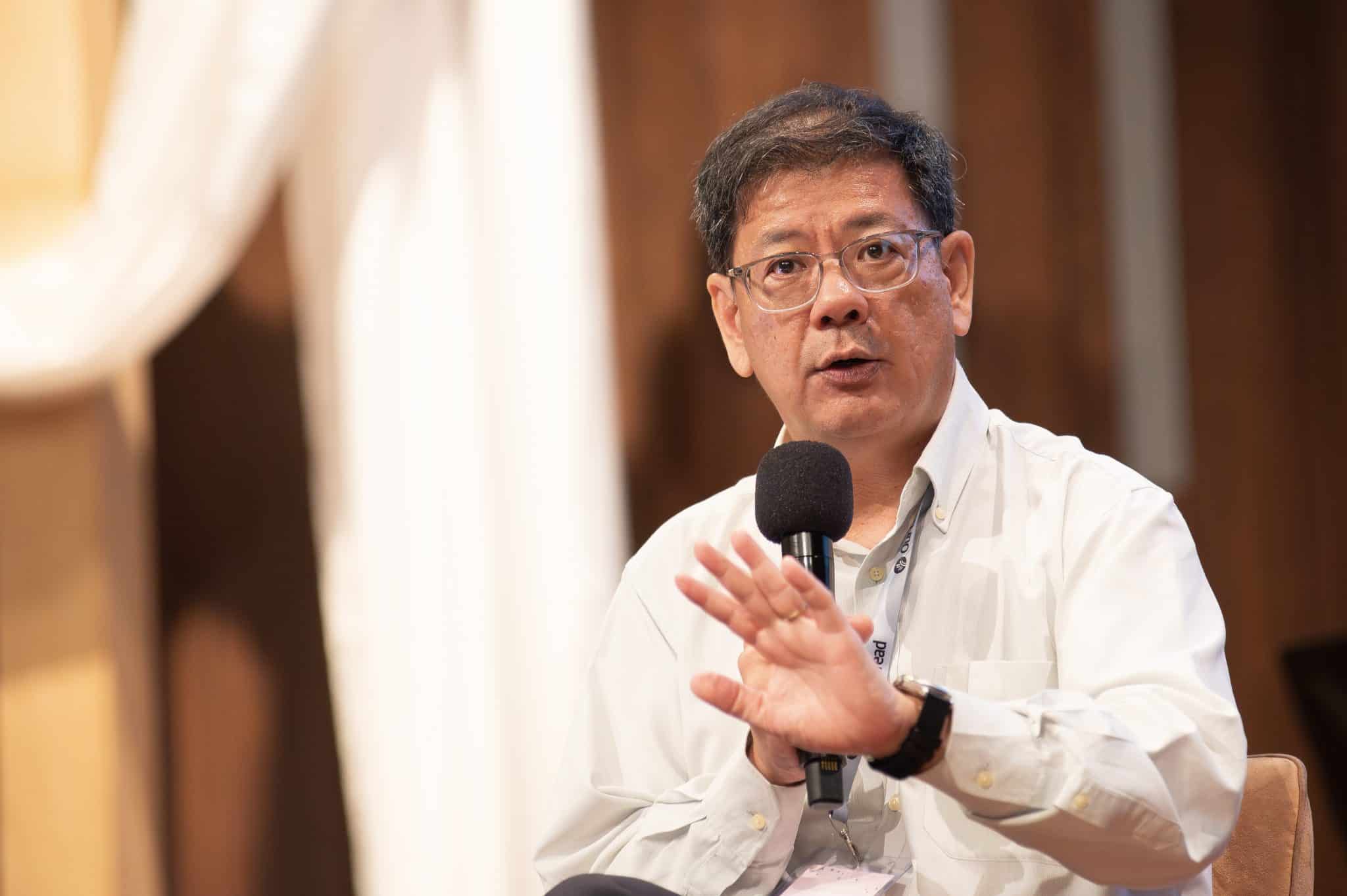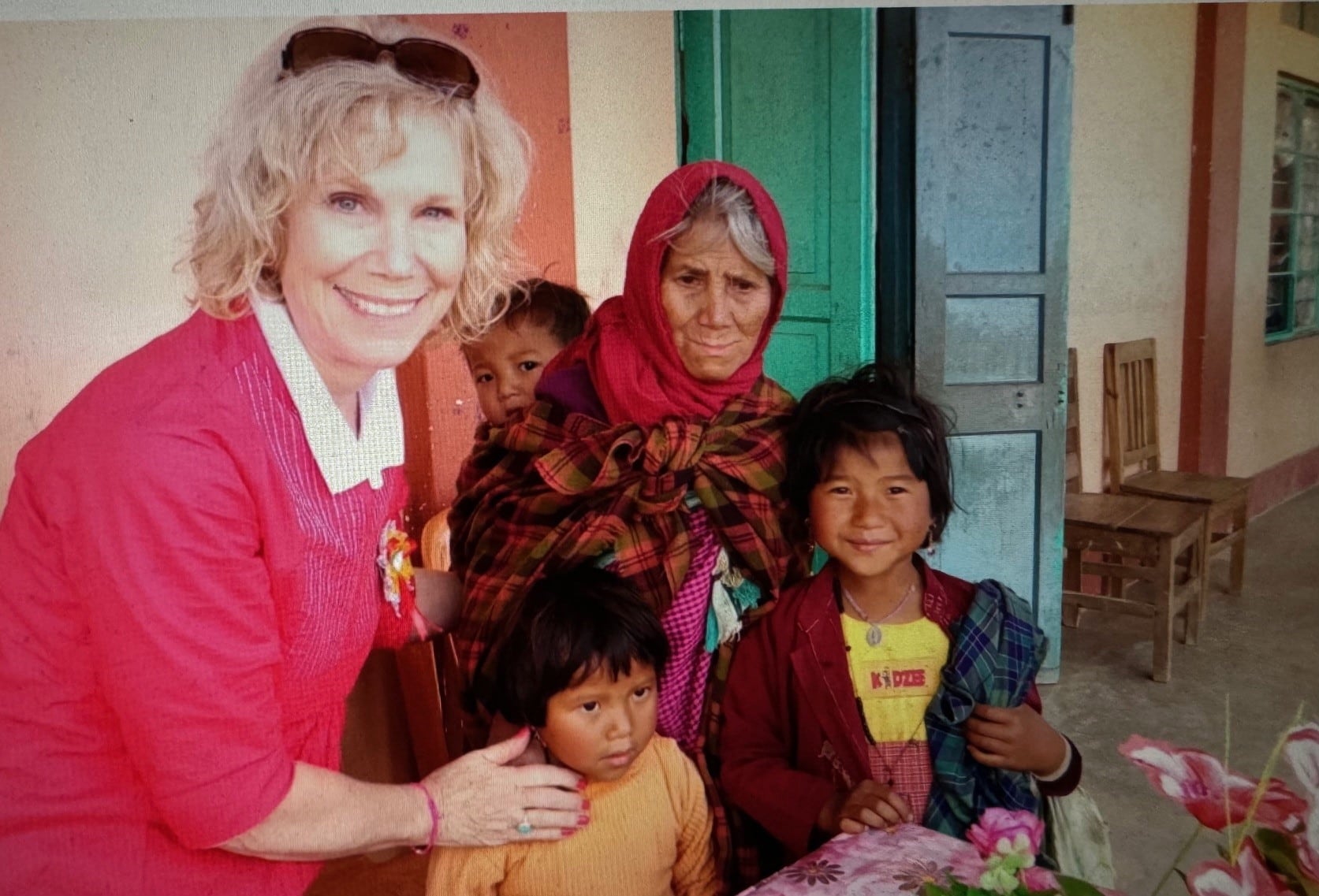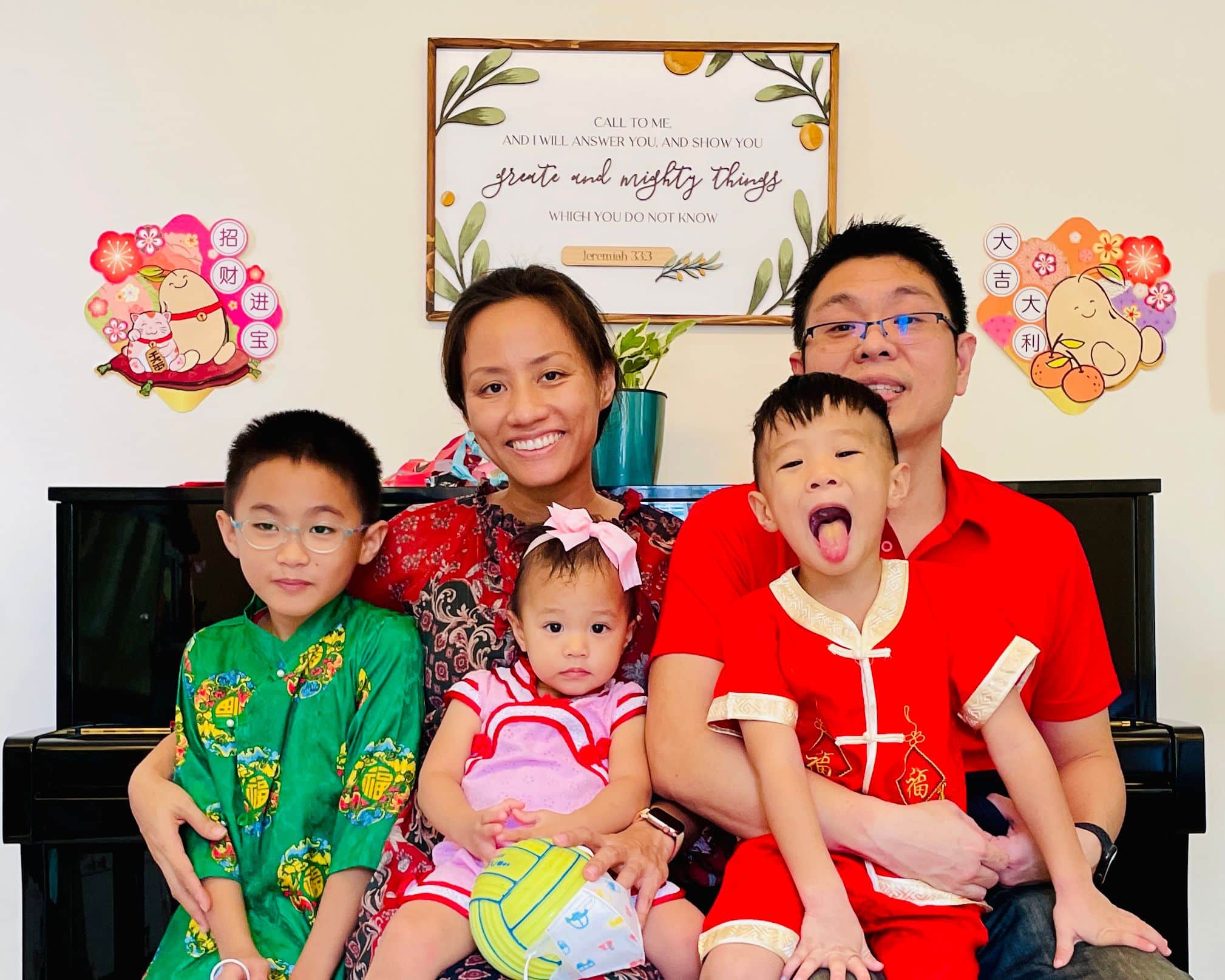“I want you to know I am here for you”: He spent 14 years caring for China’s left-behind children
Salt&Light wishes all Chinese readers a Blessed Lunar New Year
by Gracia Lee // January 28, 2022, 12:02 am
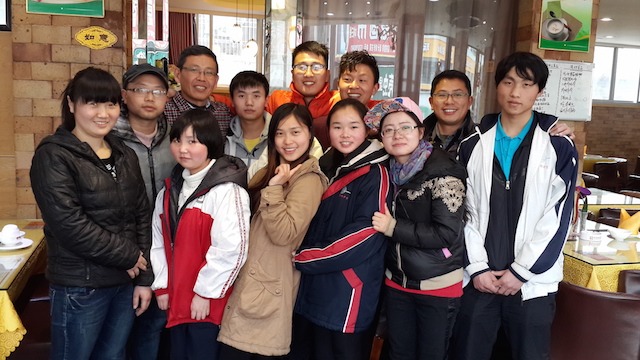
"If you know that I can love you without conditions, then when I tell you about the God who loves you, it might be easier for you to believe it," said Joseph Lim (third from left, in checkered shirt), who served the left-behind children in China for 14 years. All photos courtesy of Joseph Lim.
As families gather cheerily over reunion dinners and get-togethers this Chinese New Year, Joseph Lim finds his thoughts wandering to the forgotten children in the mountains of China.
He remembers 15-year-old Yi Chen*, who once was sent home by her school for being drunk in class and hitting a teacher.
When her mother, who worked in the city, returned to the village to deal with the matter, Yi Chen gave her an ultimatum: “Stay in the village with me, or I will drop out of school and follow you to the city to work.”
“What she really wanted was to be with her mum,” said Joseph, who journeyed with and served these left-behind children for 14 years before he was banned from China in 2018.
It is not uncommon for left-behind children to go without seeing their father or mother for two or three years.
Yi Chen eventually dropped out of school to work in the city with her mother, who needed to support her family and could not afford to stay in the village.
Like Yi Chen, China’s left-behind children are those whose parents have gone to the cities to work, leaving them behind in the rural villages to be taken care of by their grandparents or family friends.
Throughout the year, these children only hear from their parents once every few weeks or months over phone calls. It is not uncommon for a child to go without seeing their father or mother for two or three years.
During Chinese New Year, most parents try to make the journey home. But it is often a traumatic and painful time for the child, said Joseph.
“After not having seen your mum and dad for a year, and then suddenly this person comes back only for two weeks, what can you talk about? You yearn for that closeness with them, and yet the barrier, the gap is already there. And after two weeks, they’re gone again,” he said.
Some parents do not even come home at all.
Forgotten in the mountains
There are nearly 70 million left-behind children in China, which makes up about 30% of the children in rural areas, according to UNICEF.
“You yearn for that closeness with your mother or father, and yet the barrier is already there. And after two weeks, they’re gone again.”
The majority of these children live in the rural areas of south and central China, in provinces like Sichuan, Hunan, Guangdong and Anhui.
This trend began after China opened its economic doors to the world in 1978. Massive foreign investment began pouring in, leading to many factories being set up in economic zones formed by the government in various cities.
With a rise in demand for factory workers, millions of farmers left their villages in search of better opportunities in the cities.
However, China’s household registration system, or hukou system, made it extremely difficult for these workers to take their children along with them.
Under this system, people can only receive an education and proper medical care in the village, town or area that they are registered in. Transferring one’s registration is often a cumbersome task.
Nearly half of left-behind children suffer from depression and anxiety, compared with 30% in urban areas.
So, parents have little choice but to leave their children at home with elderly relatives, who often have little time, resources or energy to nurture them.
This parent-child separation has taken a toll on many youngsters.
According to one study, nearly half of these left-behind children suffer from depression and anxiety, compared with 30% in urban areas. They are also more likely to suffer from mood swings and stress.
In a 2016 documentary by Journeyman Pictures, Joseph added that a third of these children may find themselves in mental institutions at some point in time.
Another one-third are likely to be involved in short-term or long-term criminal activities, he said.
An unlikely start
Yet, despite the sheer numbers affected by this trend, these children remain largely neglected by Chinese society and the Church, as many are tucked away in mountains so remote that it takes days to reach them, said Joseph.
In fact, it had only been through God’s leading – and an unlikely group of people – that he even found out about these left-behind children and the pain they often shoulder alone.
As a tentmaker in Hunan, China, in the early 2000s, Joseph ran a business outfit that brought backpacking tour groups to the mountain villages in China.
“The Word will mean nothing to them if they don’t experience God’s unconditional love.”
These backpackers were believers who would often pray over the villages and build relationships with the villagers, in hopes of sharing Christ with them.
In the summer of 2004, a group from Hong Kong arrived and had a disastrous experience that included fake train tickets, sleeping rough and eating food that was way too spicy for them.
“They had the hardest time. I thought they would never come back,” Joseph recalled with a laugh.
But, to his surprise, the group spent a few weeks praying about what they had seen and experienced, and decided to support the primary school education expenses of one child in the village.
While school fees in China are free for a child’s first nine years of compulsory education, students still have to pay for food and other expenses such as transport and lodging.
If a family is unable to pay for these additional expenses, the student is likely to drop out of school.
The amount that the Hong Kong team decided on was HKD400 (S$69) a month. It was enough to sponsor not just one child, but 17.
They expanded their efforts to include another school and ended up supporting some 50 students by the end of the year.
“You’re the first person to ask how I’ve been”
Through the screening process of this sponsorship programme, Joseph came to learn more about the left-behind children, whose experiences shocked and gripped him.
“If you know that I can love you without conditions, then when I tell you about the God who loves you, it might be easier for you to believe it.”
He still vividly remembers the time he met a student and asked her: “你最近过得好不好?” (How have you been recently?)
After hearing this simple question, the girl burst into tears. When Joseph asked why she was crying, she replied: “叔叔, 从来没有人问过我过得这么样. 你是第一个.” (Uncle, you’re the first person to ask me how I’ve been.)
“It still breaks my heart,” said Joseph, his voice breaking. “That shatters a lot of things in me.”
In another encounter, he asked one 10-year-old boy if he had any hopes for his future. Did he want to go to high school or university? Or maybe work as a bus driver? Instead, the boy replied: “If I can live through today, it is good enough.”
As Joseph heard more about their stories and saw the lives they lived, his view of sharing the Gospel began to change.
He said: “The Word will mean nothing to them if they don’t experience God’s unconditional love.
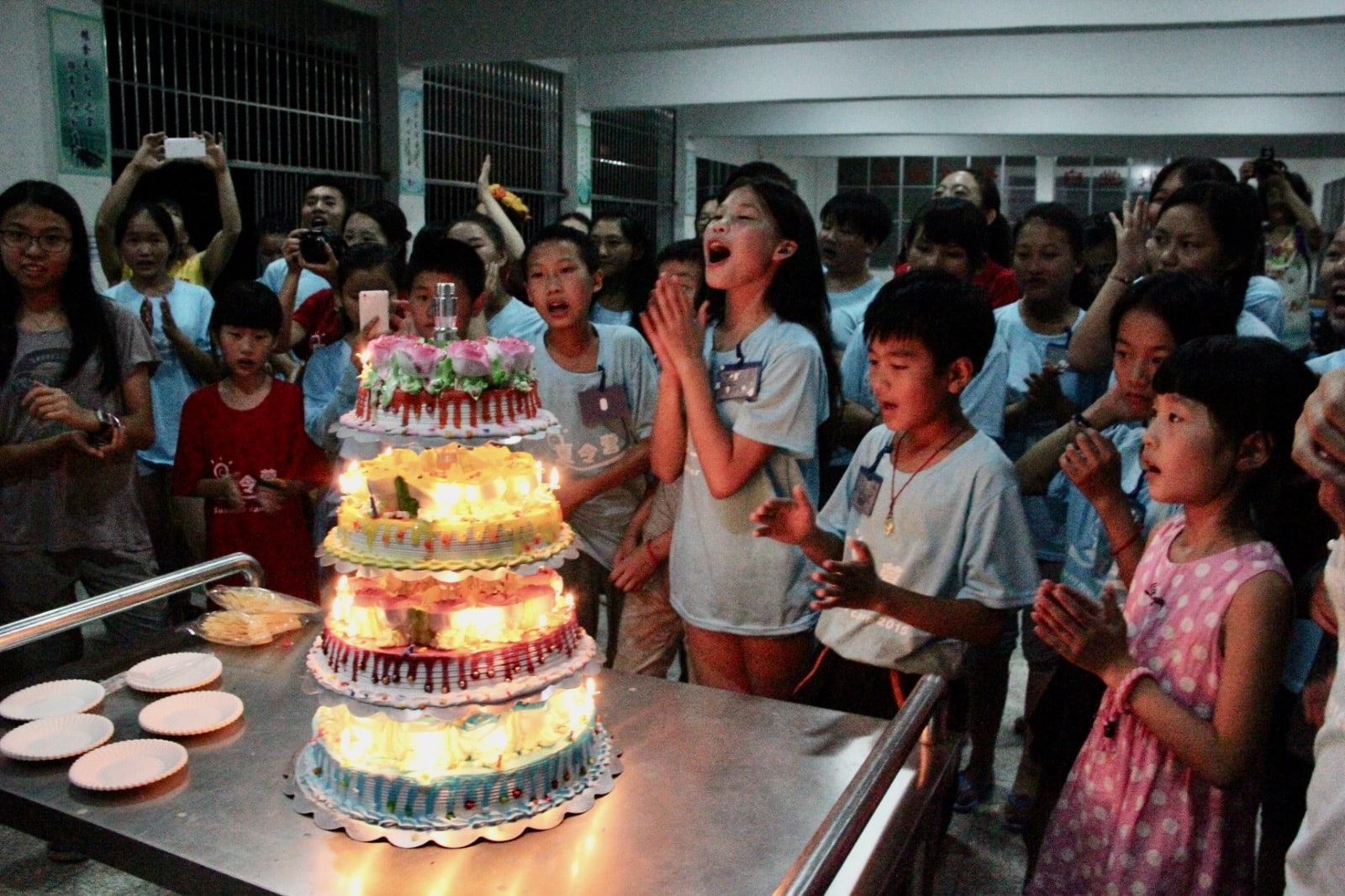
Every year, Joseph and his team would organise a summer camp, where they would celebrate the birthdays of the children. This simple gesture means a lot to these children, as many of them do not have their birthdays celebrated, he said.
“Yes, I can share about God’s love and about what Christ did on the cross. And yes, they might accept Christ. But I know that they will still go back to their dormitory feeling empty. They still have no family.
“So I felt that I needed to show unconditional love first. If you know that I can love you without conditions, then when I tell you about the God who loves you, it might be easier for you to believe it.”
A scholarship without conditions
One of the first things that Joseph felt led to do was to make the scholarship programme one without conditions.
While most scholarships are given to students who are academically strong or display good character, he felt strongly that God wanted him to take in any student that required help – especially those who are academically weak or have behavioural issues.
“I sensed God saying: ‘When Jesus died on the cross, did I have any conditions? So how can you have conditions for a scholarship?”
He also felt that God wanted him to faithfully support these children for as long as possible, even if they are closed off or resistant to the Gospel.
“I sensed God saying: ‘When Jesus died on the cross, did I have any conditions? So how can you have conditions for a scholarship? You are indirectly telling them that I am a God who loves with conditions. And when they believe in Me, they will think that I am that kind of God’,” said Joseph.
He admitted that he had a tough time wrapping his head around the idea. “It’s like a recipe for disaster! Wouldn’t this waste the financial resources of sponsors?” he recalled thinking.
But over the years he came to a realisation, which he penned eloquently in his newly released book, Left Behind But Not Forgotten: “Grace is truly to be given away freely, but not without cost to us. Unconditional love is to be given away at the risk of failure.”
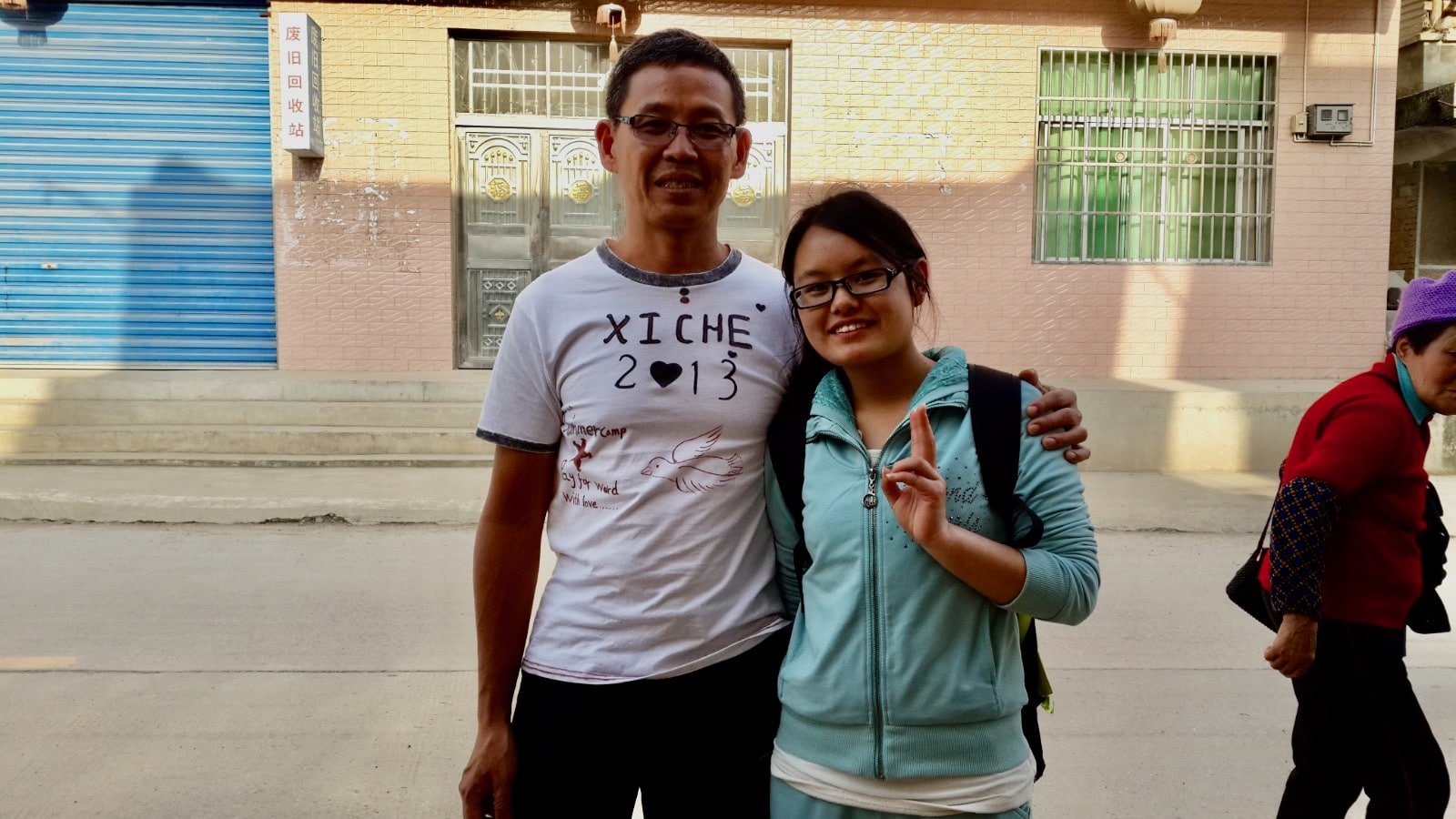
Joseph with a student in his programme who ended up going to medical school.
It was a shift in mindset that not everyone could accept, as some Christian sponsors decided to drop out of the programme, said Joseph.
But he was determined to simply love them through this programme.
“I always told the kids, ‘If you can study, I will do my best to help you find sponsors, even when you go to university. But if you can’t study, it’s okay. Finish your basic education, go and learn to be a driver, a mechanic, a cook, or whatever you want.
“But know that someone loves you. That’s the most important thing. Know that we come to help you not because you are poor, but because you are very precious. You are valuable to us.”
Love that flows through brokenness
Joseph’s compassion for these left-behind children is palpable.
His eyes brim with tears when he shares some of their stories, and his voice breaks as he recounts these things that happened more than a decade ago.
“We seldom think that God feels pain. But His heart really breaks for these children. He really feels broken for the people.”
The brokenness he feels is, to him, just a glimpse of the pain that God goes through when He sees His people suffering.
“We seldom think that God feels pain. But His heart really breaks for these children. He really feels broken for the people,” he said.
He recalled a time when the mother of one student in his programme passed away. The boy and his sister were left orphans, as their father had died when they were younger.
Joseph remembers weeping and grieving in a way that surprised him.
He said: “I asked God, ‘Why? Yes, he is a kid in our programme. But he’s not my kid. Why do I feel so broken?’
“Then God said to me, ‘I want you to feel how I feel, that I have two more orphans in the mountains.'”
And while God feels broken for those who hurt, He also moves to redeem this pain, Joseph realised.
“I asked God, ‘Why? Yes, he is a kid in our programme. But he’s not my kid. Why do I feel so broken?'”
“When a cup is cracked, whatever water you pour in will spill out. Doesn’t God allow our lives to be like that? So that when He pours His love in, His love will come out through the cracks that we have,” he said.
It is something that he has experienced firsthand, having grown up as an adopted child in a family he struggled to find his place in.
Born in Malaysia to a taxi driver who was dying of cancer and a washer lady struggling to keep the family afloat, Joseph, the youngest of five sons, was given away to a childless uncle living in Singapore when he was two years old.
“I never felt belonged in my family. There was a certain disconnect. It affected me, and I couldn’t make friends in school. I became a loner,” he said.
But it was this pain he endured in his growing up years that helped him understand more deeply the loneliness that the left-behind children feel.
Patient love
To give the work some structure, Joseph set up a non-profit organisation and hired one to two staff members to help with keeping in touch with students in their programme, which at its peak had about 250 students.
At least once a month, he would travel for 24 hours from his home in Hong Kong to the mountain villages to spend some time with the students in their homes.
But it was difficult to break the ice with them.
During his first year, Joseph noticed that the students were withdrawn and had their wall up. They would not greet him in school. In fact, they would go out of their way to avoid him.
Even when he passed them money from their sponsors, they would not say a single word of thanks.
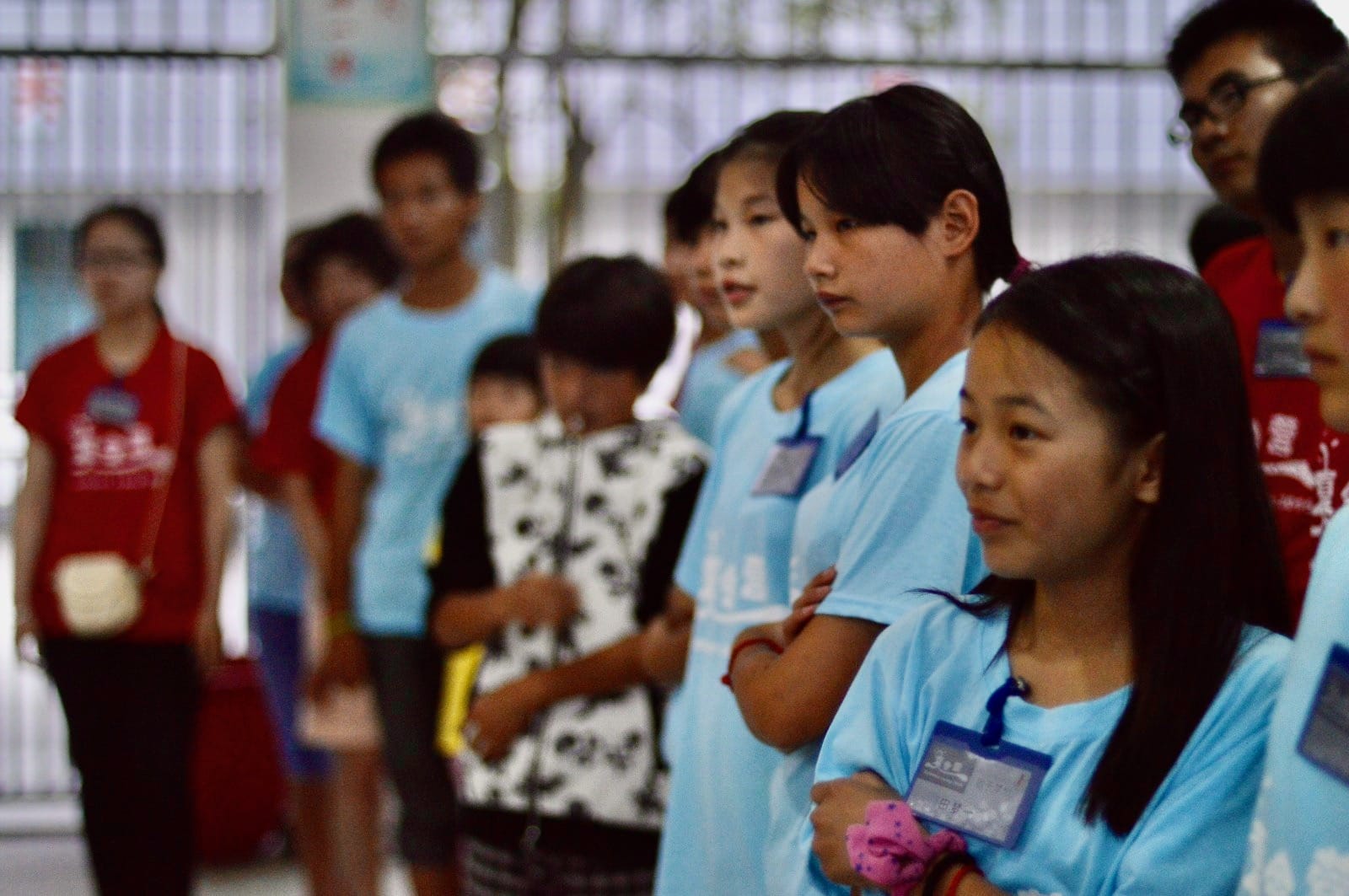
Due to the years of trauma and pain they’ve experienced, many of the left-behind children are introverted and have a hardened exterior that takes time and effort to break.
Later, he realised that they were not used to receiving love, especially one that was without any strings attached. “They were thinking: Are you sure? Is this for real? So they will kind of test you,” he said.
But Joseph persisted.
During his visits, he would walk with students on winding dirt roads from their school to their home – often for several kilometres each time and up to seven hours a day.
In both summertime when temperatures soared to up to 40 degrees Celsius, and wintertime when the mercury dipped, he would walk with them.
“I wanted to use that time, even if it takes us two hours to walk to one home, to talk with them and understand that this is how they live.
“It was important to let them know that we can walk together. It doesn’t mean that because I’m a foreigner, or older than you, I must take a van. I can walk with you.”
At the beginning, most of these walks were silent. It took more than a year before the children warmed up to Joseph and his staff.
“Some of them took up to three years,” Joseph revealed.
Those who slip through the cracks
His years of faithful love and support paid off and has helped to guide many onto the right path.
There is Bing Wen*, a once rebellious teenager whose father died of burns in a workplace accident. He has since graduated from a vocational college and is a successful dance instructor.
There is Lei Yi*, an extremely quiet girl who had always felt like a failure. She is now a registered nurse and just recently got married.
There is Mei Chen*, who wrote a letter to Joseph promising that if he ever fell sick, she would drop everything she’s doing to go and take care of him.
“That was touching but also sad, because I had replaced her father,” said Joseph. “But you can see that they learn to give back emotionally and in a lot of ways.”
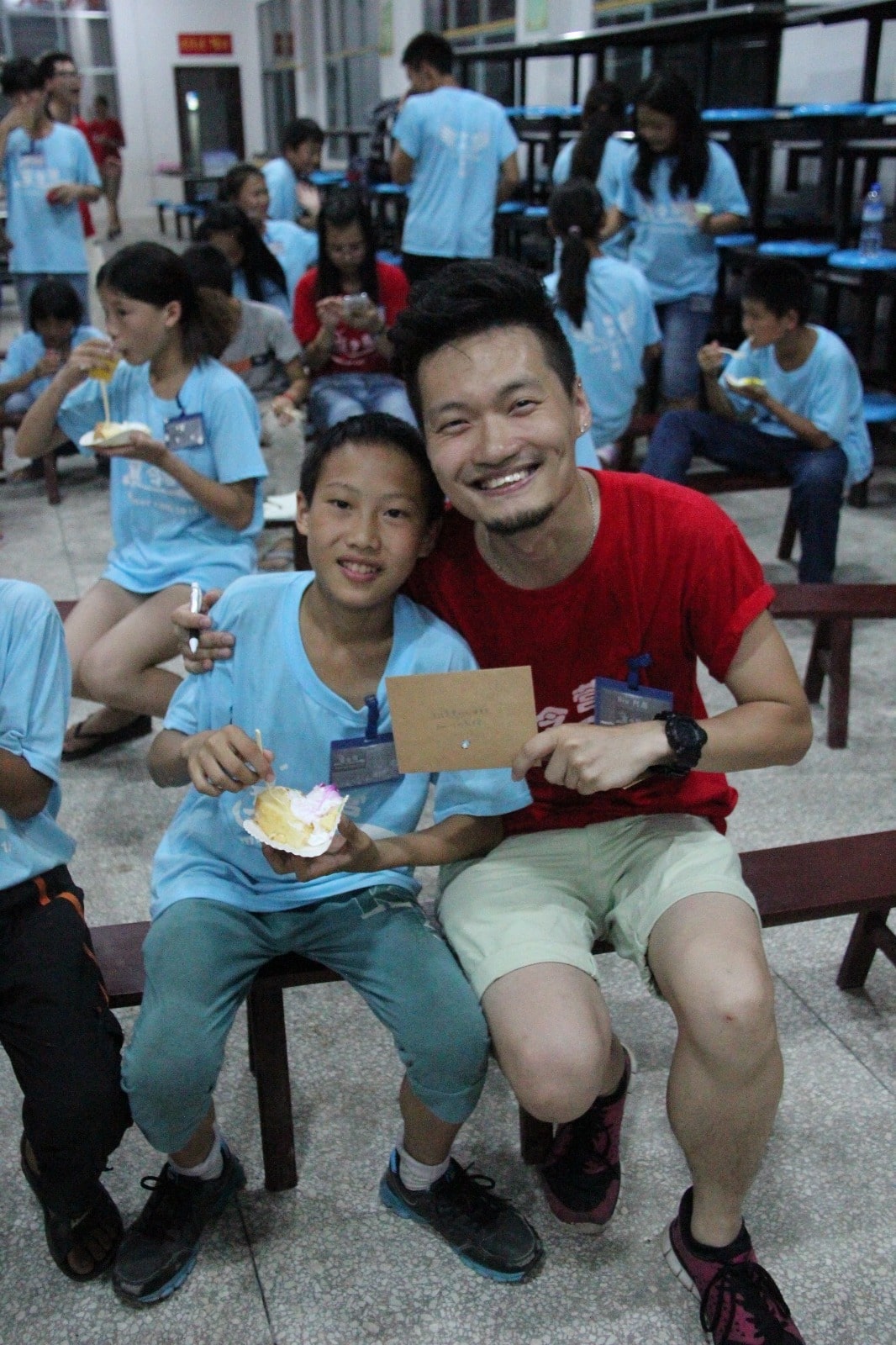
During the yearly summer camps, volunteers from Hong Kong and even Sweden would come to interact with the kids.
Yet, there were also many children whom Joseph failed to help, like Shan Yuan*, who was left an orphan after both his parents died.
After his uncle took his sister in as one of his own, leaving him in the village with his grandmother, Shan Yuan coped by burying himself in online games.
“I have walked the first 16 years of my life alone. Who will accompany me as I walk the next 16 years?”
One night he scaled the school wall after bedtime to go to a nearby Internet café to play games. When the discipline master found him there, he slapped him publicly.
Humiliated, Shan Yuan packed his things and left the village for Beijing. Though Joseph and his staff tried to contact him several times, he never replied.
Joseph still remembers one heartbreaking post on Shan Yuan’s account on QQ, a Chinese social media platform, which read: “I have walked the first 16 years of my life alone. Who will accompany me as I walk the next 16 years?”
Replying to his post, Joseph wrote back: “It’s Uncle Lim here. I want you to know that I am here for you. Any time that you want to come home, just let me know where you are. I will come get you and bring you home.”
But Shan Yuan never replied. To this day, Joseph does not know how he’s doing or where he is.
Choking up with emotion, Joseph said: “I failed him because we didn’t have enough manpower. If we had more teams on the ground, maybe we could have loved him deeper, maybe we could have reacted more quickly.
“Maybe if I had better training, I would have been able to do more. Maybe if I had a degree or something in social work or psychology, I could have done things faster. It’s always the feeling that you haven’t done enough.”
But it was these feelings of failure that forced him to depend more heavily on God, trusting that He is still working in a child’s life even when he or she is out of Joseph’s reach.
He recalled one teenager who had suddenly dropped out of school and had run away. “He was one of the so-called ‘failed’ stories,” said Joseph.
A few years later, however, the boy got in touch with Joseph telling him that he had become a Christian and was now working as a food delivery rider.
“I’ve always remembered what you’ve done,” the boy had told Joseph.
Be it stories of loss, grief or failure, Joseph does not baulk at these feelings of pain.
“It’s good to feel the pain, otherwise we become hardened,” he said. “It’s easy to feel like it’s just another kid. But God kept our hearts very soft. No, this is not just another kid. This is His creation.”
Father to the fatherless
In October 2018, while Joseph was attending a conference in Hong Kong, he received a frantic phone call from his wife informing him that his team in China had been taken by Chinese national security personnel.
“It’s almost like you raise a child for 14 years and suddenly he’s taken away from you.”
While his staff members were released after 12 hours of interrogation, the security personnel informed them that their work with the left-behind children had to be terminated immediately.
According to Joseph, this was part of a government clampdown targeting the work of large Christian organisations. He was, at the time, under Youth With A Mission (Hong Kong).
Knowing that he was under surveillance, he kept out of China for a year.
In 2019, when he tried to enter the country, he was stopped by the immigration officer, detained for a short while and informed that he was no longer welcome.
Just like that, his work with the children that he had journeyed with over the last 14 years came to an end – all without proper closure.
“It’s almost like you raise a child for 14 years and suddenly he’s taken away from you,” said Joseph.
While he still keeps in touch with some of them from time to time over WeChat, he knows he cannot go beyond exchanging pleasantries and superficial information as Chinese authorities are monitoring online activity.
Worse still, he cannot tell the children that he can no longer see them – or why – even when they ask repeatedly when he is coming back.
Clinging to Psalm 68:5, which describes God as “a Father to the fatherless”, Joseph is praying that God will continue to send people into the field to care for these left-behind children.

On his forearms, Joseph has tattooed the words: “No longer left behind” and “They shall not be forgotten”. He said: “In case one day my memory fails me as I age, these will remind me of the left-behind children that we served in China.”
As for him, his wife and two daughters, God led them back to Singapore in 2021 for reasons not yet revealed to him.
Adapting to life back home has not been easy, he shared.
“We’re Singaporean and yet not Singaporean anymore. We’ve been away for so long, we almost stand like outsiders looking in. This is not the Singapore we knew in 1999 when we left,” he said.
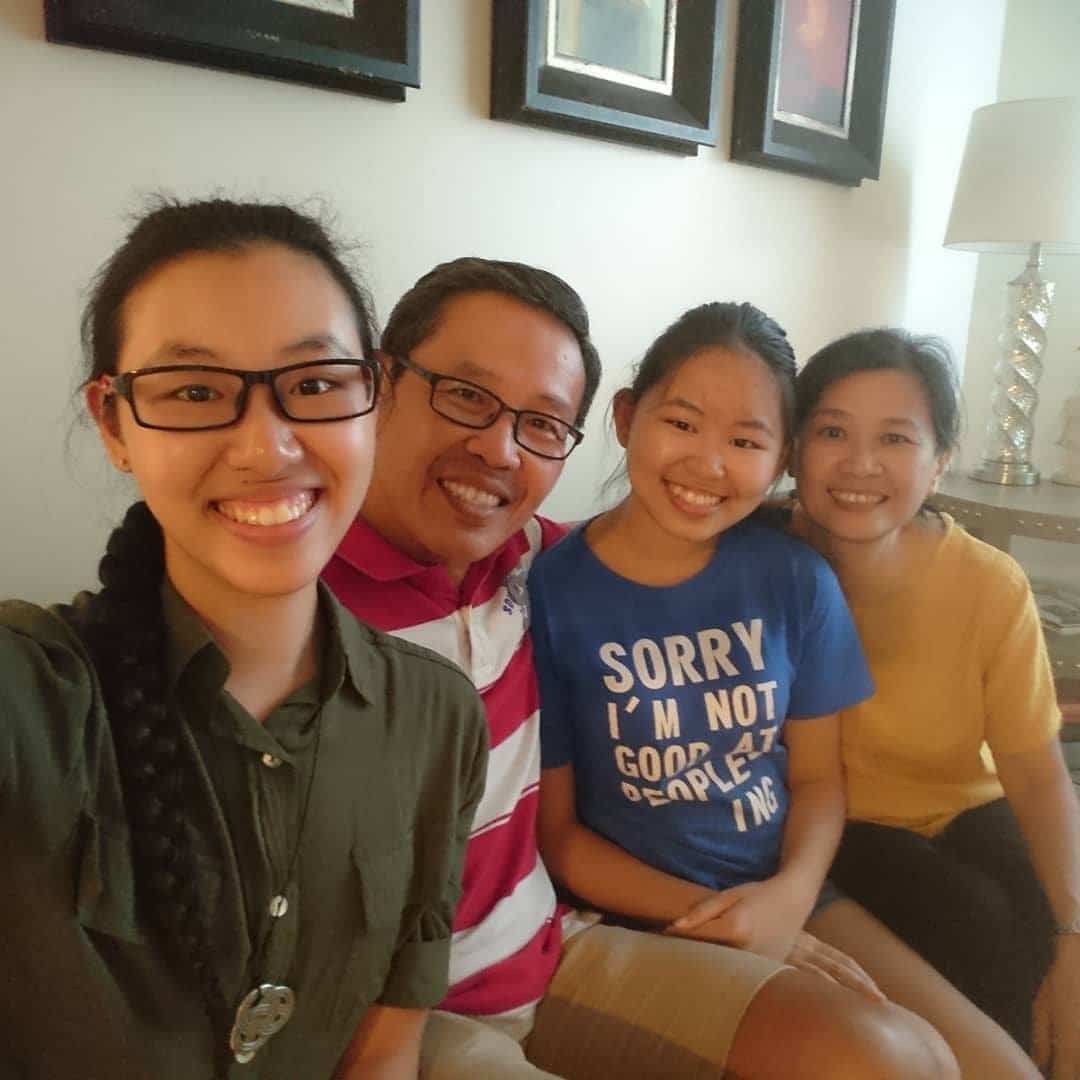
Joseph with his daughters (from left) Charmaine and Phoebe and his wife, Catherine.
By God’s providence, he found a job at St Andrew’s Autism Centre, where he coaches adults with autism in emotional management and community living.
“It’s a miracle because I had no experience in this field. But I landed the job within four months,” he said.
While he is not sure what the next season of his life will hold, Joseph continues to cling on to the God who has been faithful in his life for all these years.
He said: “If God can take care of us in China and in Hong Kong for 22 years, He can take care of us here.”
*Names have been changed for security reasons.
Read more stories about the left-behind children in Joseph’s newly released book, Left-Behind But Not Forgotten: A Journey into the World of China’s Left-Behind Children. Purchases can be made by contacting Joseph at 8204 5055. All proceeds will go to helping the Lims finance a home of their own in Singapore.
RELATED STORIES:
Novel Coronavirus: China’s pastors go digital to spur flock on to faith and prayer
We are an independent, non-profit organisation that relies on the generosity of our readers, such as yourself, to continue serving the kingdom. Every dollar donated goes directly back into our editorial coverage.
Would you consider partnering with us in our kingdom work by supporting us financially, either as a one-off donation, or a recurring pledge?
Support Salt&Light